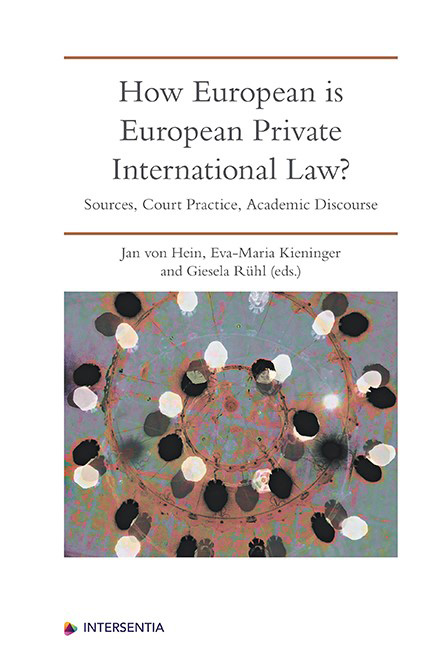National Styles of Academic Discourse and their Impact on European Private International Law: A View from France
Published online by Cambridge University Press: 22 December 2020
Summary
INTRODUCTION
A reflection on national styles of academic discourse in the field of Private International Law is an exciting though challenging task. As far as the present author is aware, academic discourse about European Private International Law has not yet itself been subjected to closer scrutiny. Over the past two decades attention has essentially been paid to the content of the emerging Private International Law of the European Union, rather than to styles of academic discourse about it. Therefore, the present book dedicated to the Europeanness of Private International Law provides an excellent opportunity to reflect not only upon the Europeanness of the law, but also upon the Europeanness of legal scholarship. This being said, this is a difficult subject and although it seems clear what European Private International Law is, all other elements of the title raise questions as to their meaning and boundaries. Therefore, it is necessary, first of all, to get a better understanding of the topic, which will result in a long introductory part, thus bringing us immediately to the heart of the issue of national styles of academic discourse, because long introductions are very common – and even expected – in France, whereas in many other Member States they are quite uncommon.
The overall approach taken in this chapter will be to identify a number of relevant questions, rather than providing answers to these questions, hoping that in doing so, it is possible to come closer to what one day might be an answer. To get started, the title of this chapter raises four major questions which require preliminary clarification: What is academic discourse? What is a style of academic discourse? What is a national style? And what kind of impact are we talking about?
WHAT IS ACADEMIC DISCOURSE?
The concept is, strictly speaking, not a legal topic. Academic discourse is mainly a subject of research in linguistics. It refers to the ways of thinking and using language in the academy. Discourse analysis comprises a collection of methods for studying language in action, looking at texts in relation to the social contexts in which they are used. In particular, it has largely taken the form of focusing on particular academic genres such as the research article, the conference presentation, or the student essay.
- Type
- Chapter
- Information
- How European is European Private International LawSources, Court Practice, Academic Discourse, pp. 255 - 272Publisher: IntersentiaPrint publication year: 2019



